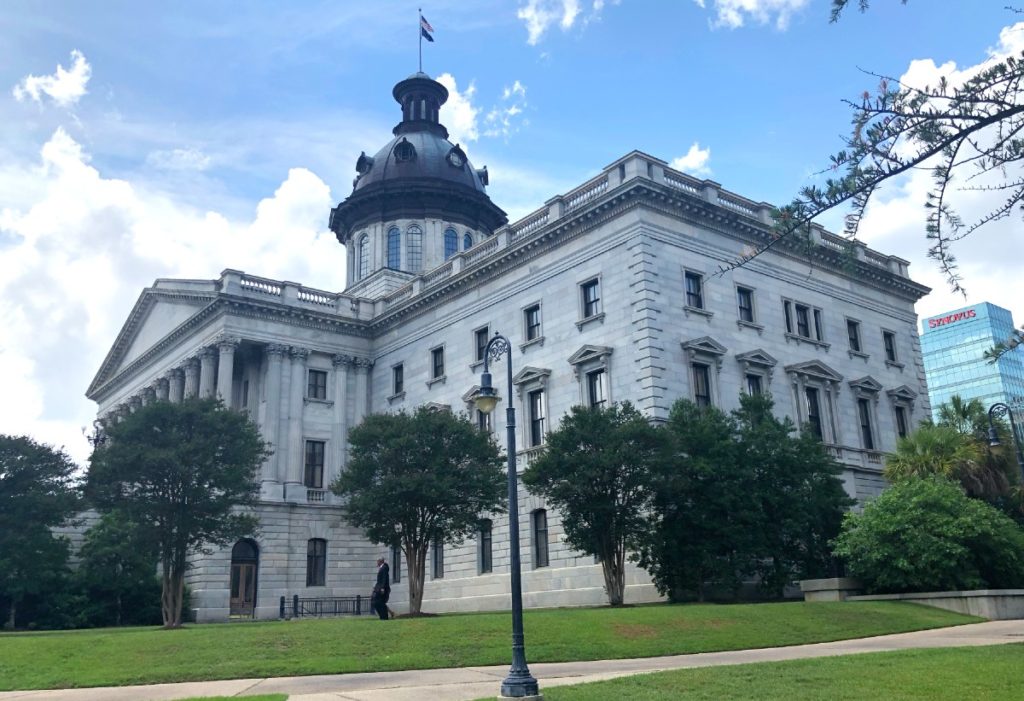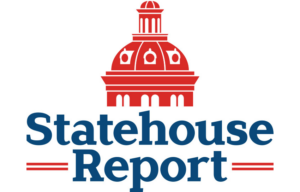
As the South Carolina General Assembly returned to Columbia this week to begin its 2025 legislative session, GOP leaders made it clear that passing a new private school voucher program was at the top of their agenda. The program would replace the one that was struck down by the S.C. Supreme Court last September.
 S.C. Senate Education Committee Chairman Greg Hembree explained the need for speed at a pre-session hearing last month, noting that hundreds of low-income families lost their vouchers after starting school due to the ruling.
S.C. Senate Education Committee Chairman Greg Hembree explained the need for speed at a pre-session hearing last month, noting that hundreds of low-income families lost their vouchers after starting school due to the ruling.
“These are real families that are caught in this sort of political, legal, Columbia problem,” Hembree said. “It’s our obligation, if we didn’t get it right, we need to fix it and fix it fast.”
To do that, Hembree’s new legislation, S. 62, would fund the vouchers with money generated by the S.C. Education Lottery, which he argues is exempt from the state constitution’s ban on using public money to benefit private schools.
But critics like S.C. Education Association President Sherry East, whose group sued to have the previous voucher law overturned, say the state constitution is clear — no public money of any kind for private schools. So if lawmakers want to have a voucher program, she told the City Paper in a Jan. 13 interview, they need to hold a constitutional referendum. But that idea doesn’t have much support among voucher proponents in the legislature, she said.
“As we heard one legislator say, ‘We can’t do that; the voters aren’t smart enough to vote on that,’” East said. “Well, I think that’s wrong. I think they are smart enough to figure it out. And I don’t think they want any part of their tax dollars paying for private schools.”
Why vouchers?
Voucher advocates say school choice programs of all kinds empower parents to take control of their children’s education, leading to better outcomes.
“For a student who isn’t thriving in the public school system, both public charter schools and private scholarships can be excellent alternatives,” said Sam Aaron, research director at the S.C. Policy Council. “They often can provide a more tailored learning experience that traditional public schools may not offer.”
Moreover, he argues, all schools benefit from the additional alternatives.
“As the saying goes, a rising tide lifts all boats,” Aaron said. “More competition in the education space leads to better educational results.”
Palmetto Promise Institute senior fellow Oran Smith agrees, saying his group is in favor of “really anything that gives parents more options” in choosing their child’s school — an idea that he argues S.C. has been slow to adopt.
“All of the states in our region are fully engaged in private school choice,” he said, pointing to new or expanded voucher programs in North Carolina, Florida, Georgia, and Tennessee. “But for some reason, we seem to be bringing up the rear.”
What’s more, he argues that the benefits of private school choice are so clear that it should be open to all Palmetto State parents, regardless of income.
“I’m not sure why we don’t just say we believe in a universal program where there’s no income test or previous public school attendance test,” Smith said. “If the parent feels the student would thrive in a setting other than their zip code assigned public school, that should be sufficient.”
Under Hembree’s plan, families with incomes up to almost $200,000 would be eligible, with a cap of 15,000 participants. This is in contrast to Arizona, where an uncapped voucher program led to a $1.4 billion budget shortfall in 2024 — though Smith notes that some voucher programs have been found to cost less than public schools.
Critics point to mixed results
Critics of private school vouchers, including some who support other forms of public school choice such as charter and magnet schools, note research on existing state voucher programs is, at best, mixed.
On one hand, they say, most studies show improved parent satisfaction and higher graduation rates among voucher recipients. But the same body of research also suggests that students in voucher programs score lower than their public school counterparts on most standardized tests. For instance, a study of Louisiana’s voucher program found significant declines in math performance, with no measurable gains in other subjects.
Conversely, the average student in a U.S. charter school is outperforming the average public school student, according to Stanford’s CREDO assessment, a large-scale, long-term study that many in the field consider the gold standard.
This has led some to question the legislature’s priorities, especially in light of CREDO’s finding that South Carolina is one of only three states where charter students are falling behind those in public schools. Why, they ask, aren’t lawmakers working to address well-known problems with the state’s charter school law, including its weak accountability standards?
“We need to update our charter legislation,” said Derek Black, the Ernest F. Hollings Chair in Constitutional Law at the University of South Carolina and an education policy expert. “And I think with an update, you’d see this system just makes a lot more sense than a voucher system.”
In fact, he believes the research is so clear that it leads him to wonder what the drive toward vouchers actually represents.
“I think what we’re trying to do here is privately finance cultural choices rather than academic choices, or at least that’s what I see when I look at the data,” Black said.


